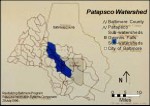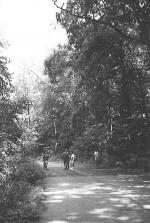How urban and suburban areas function as ecological systems is poorly known. This lack of ecological knowledge is especially problematical because urbanization, including the urban sprawl in suburban areas, is one of the major changes people are causing at the global scale.
Two research approaches are needed to increase the ecological knowledge of urban ecosystems. First, social, cultural, and economic processes must be linked with ecological processes in order to understand urban areas as integrated systems. Second, because the specific features of this integrated ecological-social system change over time, a long-term perspective reaching back into the past and projecting into the future is needed. The socio-economic and ecological changes resulting from urbanization are of long duration in many metropolitan areas, and have cumulative effects, as well as indirect effects, feedbacks, and time lags. A long-term, integrative approach will allow documentation of the outcome of bold social/ecological experiments. To complement these research approaches, public education and the application of ecological knowledge can play an integral role in linking scientific understanding with management, environmental quality and social justice issues in urban America.
The first major question to be addressed is, "What are the fluxes of energy and matter in urban ecosystems, and how do they change over the long term"" The second major question about urban ecosystems is, "How does the spatial structure of ecological, physical, and socio-economic factors in the metropolis affect ecosystem function"" The third major question concerns the linkages between basic research about the urban ecosystem and the general public: "How can urban residents develop and use an understanding of the metropolis as an ecological system to improve the quality of their environment and their daily lives?"
There can and should be a dynamic interplay between the intellectual pursuit of ecological understanding and the development of ecological literacy and ecologically sound practices in the metropolitan area. The general public, students and teachers, and various policy-makers and environmental managers all have a stake in the outcome of such an endeavor. While all ecology educators would assert that understanding the environment has utility, we now have the opportunity to test this relationship in a bold and long-term fashion.
The Baltimore Ecosystem Study
http://baltimore.umbc.edu/lter/
Telephone: 914-455-3847
FAX: 914-455-1056
Electronic mail: lter@strabo.umbc.edu or cosentinod@ecostudies.org
Deborah Cosentino, Baltimore LTER Project Facilitator
Institute of Ecosystem Studies
Box AB (Route 44A)
Millbrook, New York 12545-0129

 Enlarge this image
Enlarge this image
